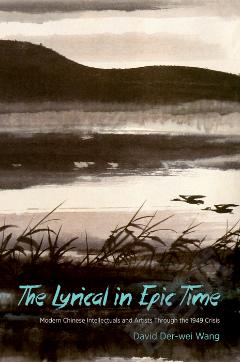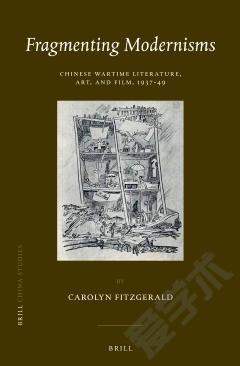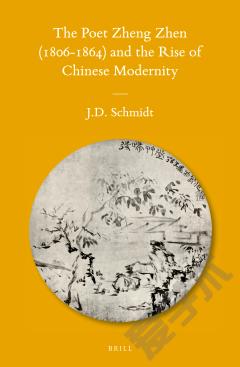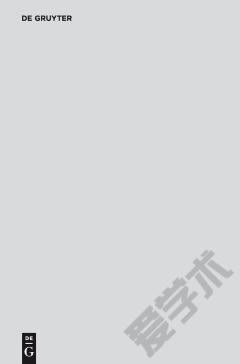The Lyrical in Epic Time —— Modern Chinese Intellectuals and Artists Through the 1949 Crisis
----- 史诗时代的抒情诗:经历1949年危机的中国现代知识分子和艺术家
(ProQuest: ... denotes non-USASCII text omitted.)The Lyrical in Epic Time: Modern Chinese Intellectuals and Artists Through the 1949 Crisis, by David Der---wei Wang. New York: Columbia University Press, 2015. Pp. xviii + 496. $60.00 (cloth).Lyrical expressions invoke exquisite feelings, melancholy thoughts, romantic yearnings, and flights of imagination. In this admirable work David Wang rediscovers the lyrical or shuqing as a hallmark of the Chinese tradition-a tradition of lyrical expressions that underwent tragic vicissitudes in twentieth---century China. Wars, political campaigns, the national split, and dispersal of Chinese into foreign lands-all these left little room for refined expressions in the lyrical vein and drove emotional utterances underground. Premised on the maxims that no good writings stem from a smooth career (wenzhang zeng ming da ...) and that rancor generates poets (fennu chu shiren ...), this book has succeeded in unearthing a group of tenacious lyrical survivals in the cracks of a history under the aegis of the epic.Taking issue with the settled paradigms of Chinese modernity marked by revolution and enlightenment, Wang seeks to trace a submerged yet continuous stratum of lyrical aesthetics and practice. He sees the lyrical as an inheritance from the classical tradition as well as appropriations from the West. In recent decades, there has been much scholarship on modern structures of feelings and related literary patterns, which I take to be a discourse closely related to Wang's notion of the lyrical. But scholars tend to see emotional expressions blending into and interwoven with social pathos and political passions. Wang challenges this pattern and is more interested in delineating the distance and tensions between the lyrical and the sociopolitical.This does not mean that social and political narratives are bereft of emotional exuberance. Where Wang departs from the epic paradigm is his inclusion of a more refined, belletrist lyricism in this study of shuqing. This inquiry provides a new prism that brings out the interplay between classical Chinese poetics and Western theories, injecting a resolutely indigenous dimension into the Western---derived theorization of modern Chinese literature and culture.The "Introduction" lays out the three key figures championing lyrical discourse. While Chen Shih---hsiang, a professor at UC Berkeley, raised the issue in the Asian studies circle at the moment of the 1949 divide, it is Shen Congwen and Jaroslav Prusek who are much more exemplary in elucidating the problems surrounding the lyrical and the epic. Shen Congwen's work comes close to a paradigmatic case of the preservation of a viable treasure trove of the forgotten relics of literati culture. Pursuing a project of "lyrical archeology," Shen wrested from the ruins of time and political changes exquisite crystallizations of artistic and poetic forms and held them up as timeless gems.While Shen's archeology seems to be an escapist withdrawal from the epic, Jaroslav Prusek's account is much more illuminating with regards to the interaction between the lyrical and epic. Indeed much of the book's argument hinges on Prusek's initial distinction between the lyrical and the epic. Wang acknowledges that the lyrical in Prusek derives more from the lyricism of pre---modern Chinese literature than from the romantic motifs of Western culture. In his interest in huaben storytelling, for instance, Prusek works lyrical aesthetics into an analysis of Chinese storytelling convention and regards it as an integrative, morally sustaining vehicle for community building. In Wang's insightful re---reading of Prusek's Marxist and Confucian views, the lyrical must merge into the epic, and as lyrical production in the May Fourth fueled the impending social revolution, the lyrical does not serve as "an estranged other" (35) of the epic but its doppelganger. The lyrical "provides cohesive power, endowing Chinese social subjectivity with a 'synthetic' capacity of its own" (35). â¦
{{comment.content}}








 京公网安备 11010802027623号
京公网安备 11010802027623号